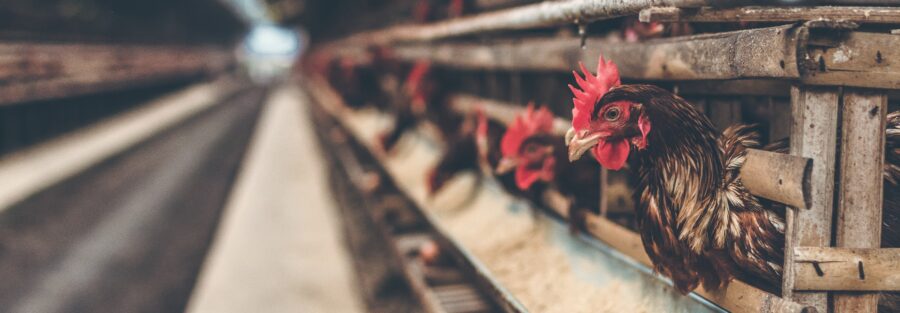Brazil & EU dumps poultry in SACU market – Implications & lessons for Namibia
Background
The International Trade Administration Commission (ITAC) – which is the de facto trade regulator for the SACU market – has concluded a preliminary investigation of dumping of poultry products into SACU. After considering all interested parties’ submissions and comments, ITAC made a preliminary determination that the subject product (HS: 0207.14.9) originating in or imported from Brazil, Denmark, Ireland, Poland and Spain are being dumped into the SACU market, causing a material injury and a threat of material injury to the SACU poultry industry. As a result, ITAC requested the relevant authorities to impose provisional measures (anti-dumping measures) on imports of the subject products for a period of 6 months. The South African Revenue Services (SARS) has gazetted the measure on 4 March 2022, to be implemented with retrospective effect from 17 December 2021 up to and including 14 June 2022. SARS by implication also manages the implementation of the SACU’s customs tariff system.
Table: The following table presents the country, company, tariff sub-heading and rate of duty applicable for 6 months.
| Country | Company | Tariff Sub-heading | Rate of Duty |
|---|---|---|---|
| Denmark | All exporters | 0207.14.9 | 67.4% |
| Denmark | HK Scan | 0207.14.9 | 39.0% |
| Ireland | All exporters | 0207.14.9 | 158.4% |
| Poland | Animex foods Sp. Z.O.O | 0207.14.9 | 5.0% |
| Poland | Dropimex Sp. Z.O.O | 0207.14.9 | 9.0% |
| Poland | Poland: all other exporters (excluding plukon sieradz Sp. Z.O.O) | 0207.14.9 | 96.9% |
| Spain | Distribuciones Avicolas Vazquez S.A.U | 0207.14.9 | 16.0% |
| Spain | An Avicola Melida S.L | 0207.14.9 | 3.0% |
| Spain | UVE S.A | 0207.14.9 | 4.0% |
| Spain | Grupo Vall Companys | 0207.14.9 | 26.0% |
| Spain | All other exporters | 0207.14.9 | 85.8% |
| Brazil | Agroaraca industria de Alimentos | 0207.14.9 | 30.5% |
| Brazil | 0207.14.9 | 30.5% | |
| Brazil | Aurora Cooperativa Central Aurora Alimentos | 0207.14.9 | 13.0% |
| Brazil | Avivar Alimentos Ltda | 0207.14.9 | |
| Brazil | C.Vale – Cooperativa Agroindustrial | 0207.14.9 | 13.0% |
| Brazil | Cooperativa Agroindustrial Consolata | 0207.14.9 | 30.5% |
| Brazil | Jaguafrangos Industira E Comercio De Alimentos Ltda | 0207.14.9 | 48.0% |
| Brazil | Rio Branco Alimentos S/A | 0207.14.9 | 10.0% |
| Brazil | Seara Alimentos Ltda | 0207.14.9 | 6.0% |
| Brazil | Zanchetta Alimentos Ltda | 0207.14.9 | 30.5% |
| Brazil | All other | 0207.14.9 | 265.1% |
What is dumping and how is it determined?
In trade terms, dumping occurs when the exporting country sells the subject product in SACU at prices less than the normal value in the countries of origin. An anti-dumping action is normally initiated by the domestic producers through a submission of application to ITAC. Once ITAC accepts the application, the investigation is conducted in accordance with the ITAC Act, 2002 (Act 71 of 2002) and the International Trade Administration Commission Anti-Dumping Regulations (ADR) read with the World Trade Organisation (WTO) Agreement on implementation of Article VI of the General Agreement on Tariffs and Trade, 1994 (“the Anti-dumping agreement”).
In this application, it is further alleged that because of dumping of the subject product from the above-mentioned countries, the SACU industry was experiencing material injury in the form of; price undercutting, price depression during the 2017/18 – 2018/19 period, price suppression, decline in profit, decline in return on investment, ‘decline in capacity and capacity utilisation and increase in inventory.
The application was submitted by 8 participating South African producers and information was verified between 1 December 2020 to 15 December 2020, while ITAC accepted the application as properly documented on 13 January 2021.
ITAC then initiated a preliminary investigation into the alleged dumping of frozen bone-in portions of fowls of the species Gallus Domesticus originating in or imported from Brazil, Denmark, Ireland, Poland and Spain. Prior to initiation of the investigation, the trade representatives of the countries concerned are notified. The investigation period for dumping is from 1 July 2019 to 30 June 2020.
Table 2: The following table shows the quantity of imports (kg)
| July 2017 – June 2018 | July 2018 – June 2019 | July 2019 – June 2020 | |
|---|---|---|---|
| Total dumped imports | 157 802 353 | 163 642 552 | 104 487 452 |
| Other imports | 95 115 108 | 95 743 474 | 93 495 387 |
| Total imports | 252 917 461 | 259 385 926 | 197 982 839 |
Table 3: The Price disadvantage was calculated to be as follows:
| Price Disadvantage | July 2019 – June 2020 (FYP 2020) |
|---|---|
| Price Disadvantage | |
| Brazil | 30.5% |
| Denmark | 16.9% |
| Ireland | 23.4% |
| Poland | 33.1% |
| Spain | 36.8% |
Implications for Namibia
It is evident from the ITAC detailed report that it was only the South African poultry producers (8 of them) who initiated the investigation by lodging an application with ITAC on behalf of the SACU market. ITAC’s procedures only require that a substantive portion of the domestic industry or market be affected for it to act. The South African poultry sector is deemed sufficiently large to meet this requirement on its own without the need for poultry industries in other countries in SACU to be taken into account. Whether Namibia and other SACU members (Botswana, Lesotho, Eswatini) participate or not, the outcome and its implementation directly affects all SACU members since SACU has a common external tariff making it a common customs territory or in simple terms, one market. So, by implication, importers in Namibia will have to pay the applicable anti-dumping duties when importing from those countries, while domestic producers will also benefit from the protection provided by the additional duties.
Lessons for Namibia
Namibia should prioritise institutionalising her own trade regulator body to align implementation of the SACU Agreement and other trade agreements in place and those yet to be gazetted for implementation such as the African Continental Free Trade Agreement (AfCFTA). A trade regulator body will allow Namibia to set up and build capacity in trade remedy matters which include trade investigations for dumping and countervailing measures (a surge of imports upon opening the domestic market to products under a trade agreement), as well as coordinate tariff setting and implementation issues, as well as determination of rebates, with ITAC. A trade regulator body provides a platform to private sector to access in a transparent manner SACU rebates and drawbacks used primarily as intermediate inputs in manufacturing process. The body will also balance private sector support within the customs union to maximise the benefit of the SACU Agreement and other international trade agreements already in place. Namibia’s envisaged ‘Board of Trade’ has taken too long to enact, thereby not only delaying the establishment of the SACU Tariff Board and joint decision-making on SACU tariff matters, but also pushing Namibia further behind with achieving her vision 2030 industrialisation goals.
Maria Immanuel
Technical Advisor,
Namibian Agricultural Trade Forum (ATF)






